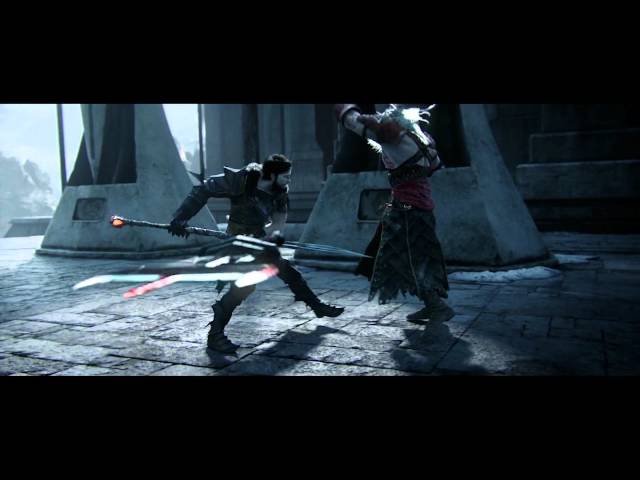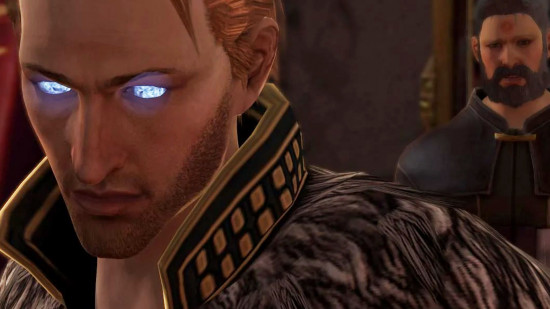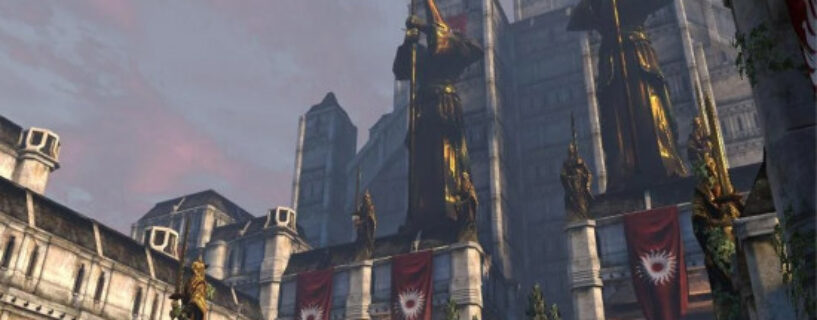Depending on who you talk to, you’ll get a different answer on which Dragon Age is their favorite. The elders will grow misty eyed and reminisce about Dragon Age: Origins, which took the Baldur’s Gate formula and updated it for the next millennium. Some will look fondly at Dragon Age Inquisition and its MMO style of questing across vast, sprawling plains, complete with some of the best characters in the series. Over the coming months, I’m sure even others will point towards Dragon Age: The Veilguard, as a new generation gets to step into the legendary RPG series. And then there’s Dragon Age 2, spoken of only in hushed tones by those contrarian few who hold it dear to their hearts. But the time for timidity is over. I’m here to shout that Dragon Age 2 is easily the best of the series, and it needs to step out and take its rightful place in the sun.
I remember the chaos that ensued back in 2011. Dragon Age 2 followed a weighty yet traditional RPG by going in a completely different direction, and fans were incandescent. What people wanted was more of the first game, albeit with extra bells, whistles, and a lick of paint. What they got was an experimental game that played with expectations in novel ways, and that’s precisely why, 13 years later, Dragon Age 2 remains the best of the series.
There are three main reasons that Dragon Age 2 is the best. First is Kirkwall. Oftentimes, RPGs are waiting for the player to come along and save everything. Take Skyrim for example. Everything’s basically in stasis until you get there, the entire population of Tamriel’s coldest corner just standing around until the Dragonborn shows up. Kirkwall feels more like a living, breathing city – the way you experience and explore it only makes it feel more real.
Dragon Age 2 is set over different time periods, so you get to see Kirkwall change and grow, the people reacting to decisions that you made years earlier. It forces you to learn the streets and the people who make them their home in a way that most other RPGs never bother to do.

Of course, spending years in a city would be no fun if you were by yourself, which is why it’s just as well that the Dragon Age 2 companion roster is up there with the best of the series. From Merrill to Isabela, Aveline to Varric, each of your companions are presented not simply as functional or mechanical ‘devices,’ exclusively here to help you on your quest, but as people in their own right.
Nowhere is this more apparent than with rogue mage Anders, who you encounter in Origins’ colossal DLC, Dragon Age Awakening. Anders comes into his own in DA2. He has his own life; his own goals that can be completely separate from yours. He’s flawed, arrogant, and more than a little driven, which makes him human. Unlike other RPGs, Dragon Age 2’s companions aren’t there just to fetch, carry and bonk things on the head in battle – they’re the center of a rich narrative, composed of various interlinking threads.

That narrative is Dragon Age 2’s last great strength and it’s a big one. You see, you’re not playing Dragon Age 2 when you play Dragon Age 2. You’re playing through Varric’s retelling of the events of Dragon Age 2. Unreliable narrators are a big thing in novels, with many series like The Book of the New Sun deploying them to savage effect. In gaming, however, they’re rarer, with only similarly experimental titles like Dear Esther or Call of Juarez Gunslinger giving them an airing. In Dragon Age 2, you have no idea if what you’re seeing or playing is real or just the tellings of a grandiose showman. It plays with your expectations, treating the player as an adult who can make up their own mind about the story Varric is spinning.
Now don’t get me wrong, Dragon Age 2 isn’t a perfect game. It probably leaned too far into being a console game, the re-used assets are a problem (especially when you’re exploring the same cave for the fifteenth time), and combat is a little simplified. But despite all that, it tried something different in an RPG series that has played it safe more often than it’s taken risks.
Personally, I’d rather play a flawed experiment than something that treads ground already heavy with footprints, and even if you accept its flaws, Dragon Age 2 pointed the way to a more innovative gaming landscape that wasn’t afraid to take risks. Perhaps we should have paid more attention to Dragon Age 2’s many successes, rather than its perceived failures.

